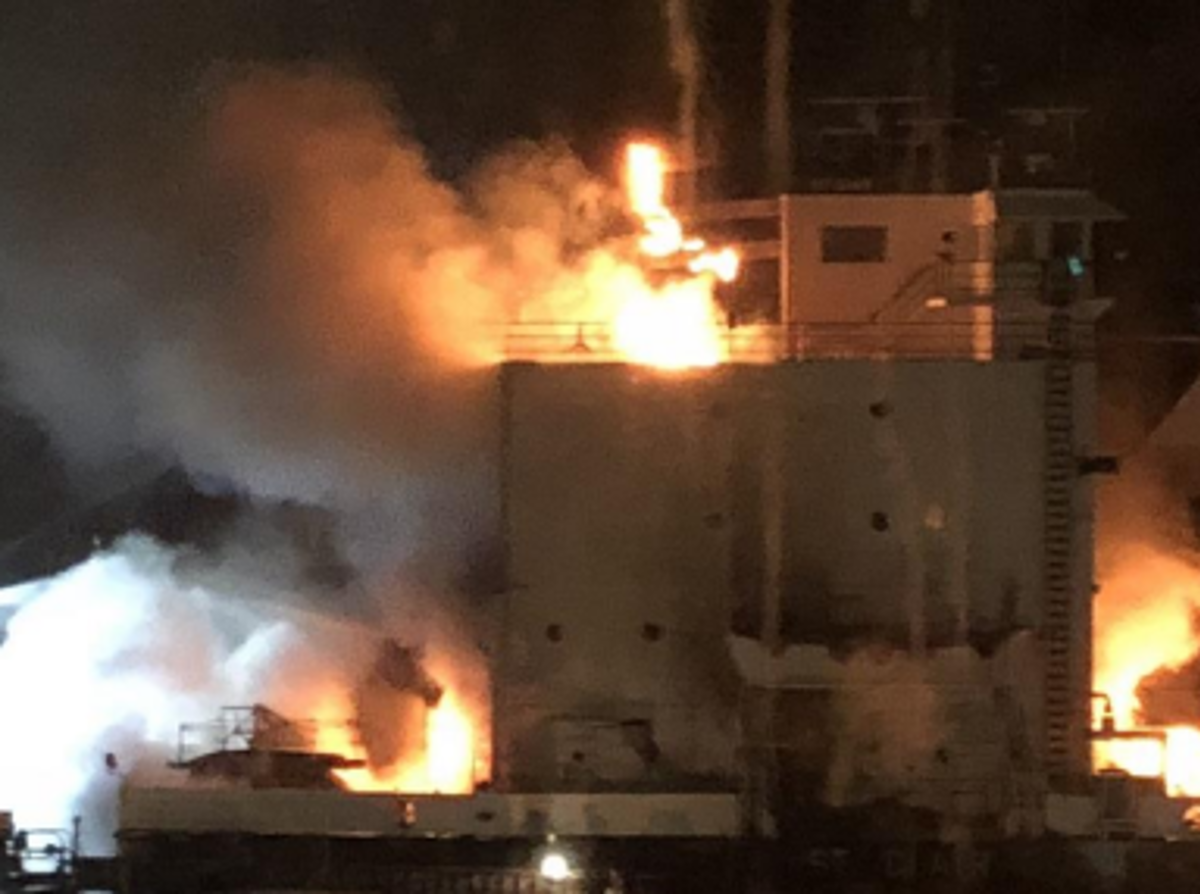For want of a watchman, the ship was lost
- Safety Flash
- Published on 30 September 2019
- Generated on 27 February 2026
- IMCA SF 23/19
- 2 minute read
Jump to:
The United States Coast Guard (USCG) has published Marine Safety Alert 07-19 entitled ‘For want of a watchman the ship was lost’.
What happened?
The safety alert tells the story of a Great Lakes bulk carrier laid up for the winter suffering a catastrophic fire that caused major cosmetic, machinery, and structural damage. The vessel was unmanned and vacant at the time the fire was discovered. There were no injuries.

The fire appeared to have originated in the machine shop on the gangway deck, above the lower main engine room space. Numerous possible sources of ignition were identified; propane heaters, electric heaters, and heat lamps were being used in the machinery space.
Fighting the fire was hampered by cold weather causing frozen water hydrants. As a result, the fire burned for over 35 hours within the upper engine room spaces, moving up into the entire superstructure. While the fire was being fought, the electrical shore power supply to the vessel failed. Within the machinery space, a number of valves had been opened for maintenance and to drain various systems. During the fire and due to the power loss, the system used to prevent freezing around the machinery space area of the hull failed. As a result, and because of the several days of freezing weather, various piping systems failed and allowed water to flood the machinery space. The flooding continued until divers were able to secure the flow from the sea chest.

What actions were taken?
As a result of this fire, the USCG strongly recommends that vessel owners and operators, particularly of vessels in layup, or vessels using shore power and or on which work is being performed:
- Ensure that continuous fire, safety, and security watches are maintained and that the watchmen are provided specific written instructions regarding their duties in the event of a fire or other emergency situation.
- Ensure that persons with vessel engineering experience and knowledge of engine room systems are used during lay-up preparations to prevent unintended circumstances – such as, in this case, the flooding of the machinery space.
The full marine safety alert can be found here.
Featured Safety Flashes
-
IMCA SF 31/17
15 December 2017
-
IMCA Safety Flashes summarise key safety matters and incidents, allowing lessons to be more easily learnt for the benefit of the entire offshore industry.
The effectiveness of the IMCA Safety Flash system depends on the industry sharing information and so avoiding repeat incidents. Incidents are classified according to IOGP's Life Saving Rules.
All information is anonymised or sanitised, as appropriate, and warnings for graphic content included where possible.
IMCA makes every effort to ensure both the accuracy and reliability of the information shared, but is not be liable for any guidance and/or recommendation and/or statement herein contained.
The information contained in this document does not fulfil or replace any individual's or Member's legal, regulatory or other duties or obligations in respect of their operations. Individuals and Members remain solely responsible for the safe, lawful and proper conduct of their operations.
Share your safety incidents with IMCA online. Sign-up to receive Safety Flashes straight to your email.